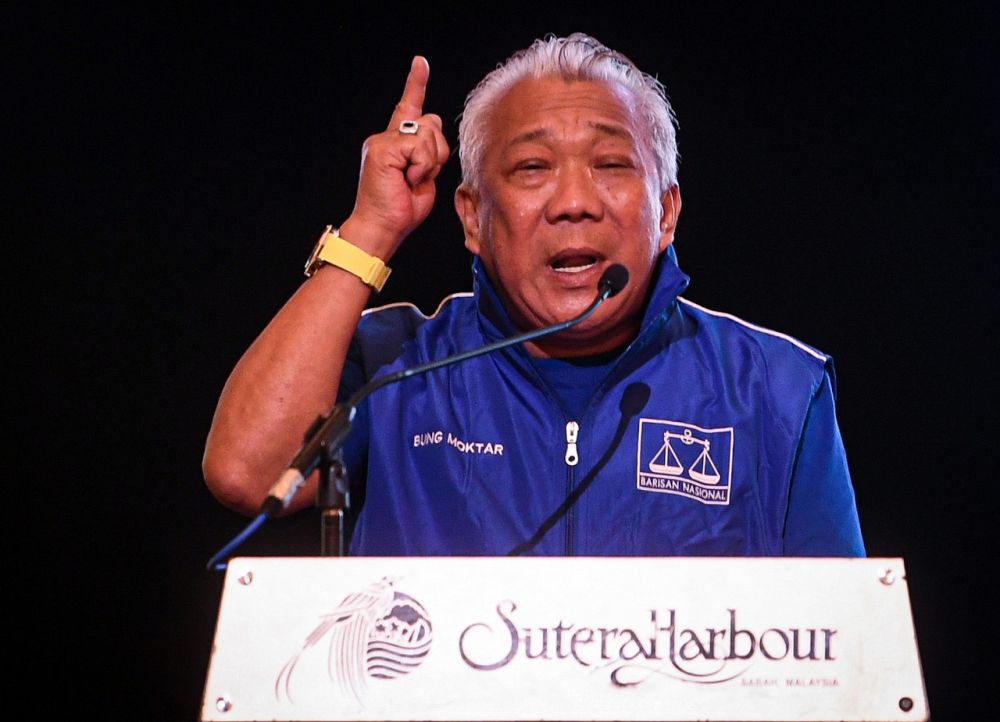KOTA KINABALU, Sept 17 — Known as the feisty MP whose antics often steal the show in Parliament, Sabah Barisan Nasional (BN) election chief Datuk Seri Bung Mokhtar Radin today conceded that he may not be the best leader.
However, the longtime Kinabatangan MP claimed to know what ordinary Malaysians like.
Bung Moktar indicated that his popularity with voters boiled down to his approachable personality, a far cry from the belligerence he portrays in the Dewan Rakyat against his political foes.
“As YBs, we should put aside protocol. We want leaders that the people can approach and not feel afraid of.
“I’m maybe not the best, but I know what the people like. I don’t want them to see me, like when they see the chief minister, no need to treat me like a sultan,” he told villagers in the Sabah west coast town of Seladan, alluding to caretaker chief minister Datuk Seri Shafie Apdal from Warisan.
Bung Moktar was stumping for Awang Shairin, the BN candidate for the Bongawan seat.
He said leaders ought to be humble and modest.
“No need to show off. Bodyguards left and right. It’s more important to live moderately; but prioritise the people’s welfare, and serve them,” he added.
The Sabah election has seen a large parade of 447 candidates fighting for 73 state seats and the BN is now part of a larger Gabungan Rakyat Sabah alliance that also includes the Perikatan Nasional coalition and other local-based parties.
Bung Moktar said the Gabungan Rakyat Sabah manifesto would ensure that all Sabahans are taken care of and not just a select few, criticising Shafie for appointing people from his own race and from Semporna on the east coast for state posts.
“Even the police commissioner said we were playing the race card but I asked him, isn’t it true he is Bajau Laut?” Bung Moktar questioned.
“We will give posts according to merit in the civil service and not race based. Pity them. They have worked hard for so long only to watch people under them get promoted,” he said.
He said such practices will eventually demoralise the civil service and cause them to be inefficient and unproductive.



















